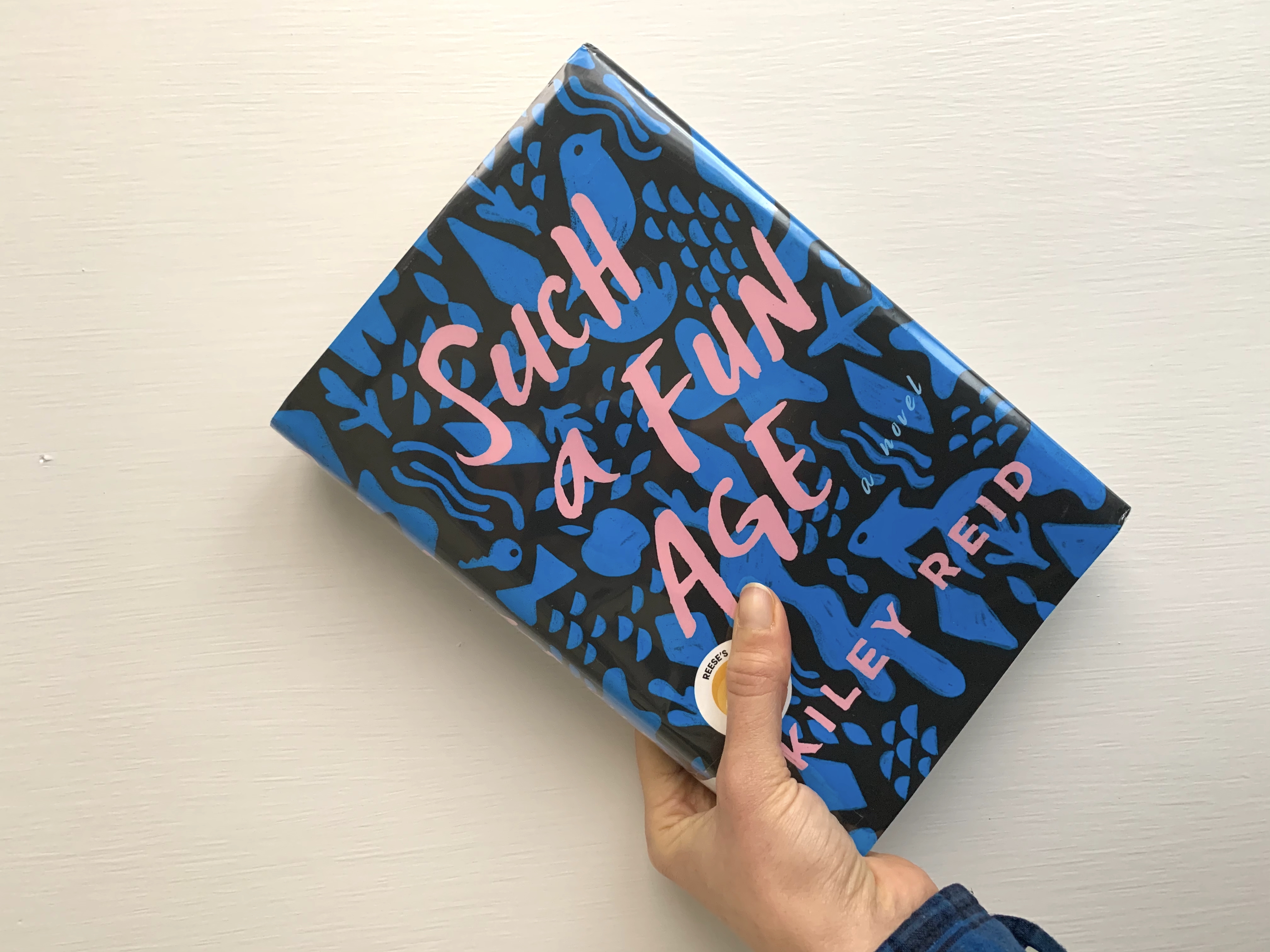Earlier this year, I participated in a workshop called Justice for June based on a resource compiled by Autumn Gupta with Bryanna Wallace’s oversight. The program sought to help participants become a better allies to the Black community. Through reading, videos, Ted Talks, and more, this resource guided me through deep self-reckoning about racism. One of the key takeaways? We’re all racist. Now what are you going to do about it?
Such a Fun Age grapples with this reality via a story in two voices. The events of the book take place in the aftermath of an evening where a young Black babysitter, Emira, is confronted by supermarket security and accused of kidnapping two-year-old Briar, the daughter of white Alix. Through Alix’s internal monologue, but also her husband Peter’s awkward missteps and Emira’s white boyfriend Kelley’s somewhat misplaced good will, the book peels back the uncomfortable layers of what it is to be “woke” for the wrong (read: self-aggrandizing) reasons. In fact, a better title might have been, I’m Not Racist. It explores the micro-aggressions that are a centerpiece of much modern racism, highlighting the ways in which even people who believe themselves to be well-meaning can misstep again and again and again.
With this as its focal point, Such a Good Age creates a chorus of fully developed, nuanced, and often dislikable characters. Alix is so concerned with self-image she grapples with even the merest morality; Kelley is problematic in his own right for his fetishization of Emira and her experiences. As for Emira? She is believably but frustratingly directionless, and while she musters enough agency to be a believable protagonist, her indecisiveness can make her a difficult main character to love. In my book club, most people said they didn’t like any of the characters at all, save toddler Briar, who manages to be believable, only a tiny bit precociously wise, and speak in toddler-ese that somehow managed not to tick me off (as someone who hates reading accents).
This is not a criticism of the book. I found it well wrought and the characters dislikability is far from a criticism; rather, it’s a testament to the talent of début novelist Kiley Ried that she could make me care so much about people I never care to meet.
